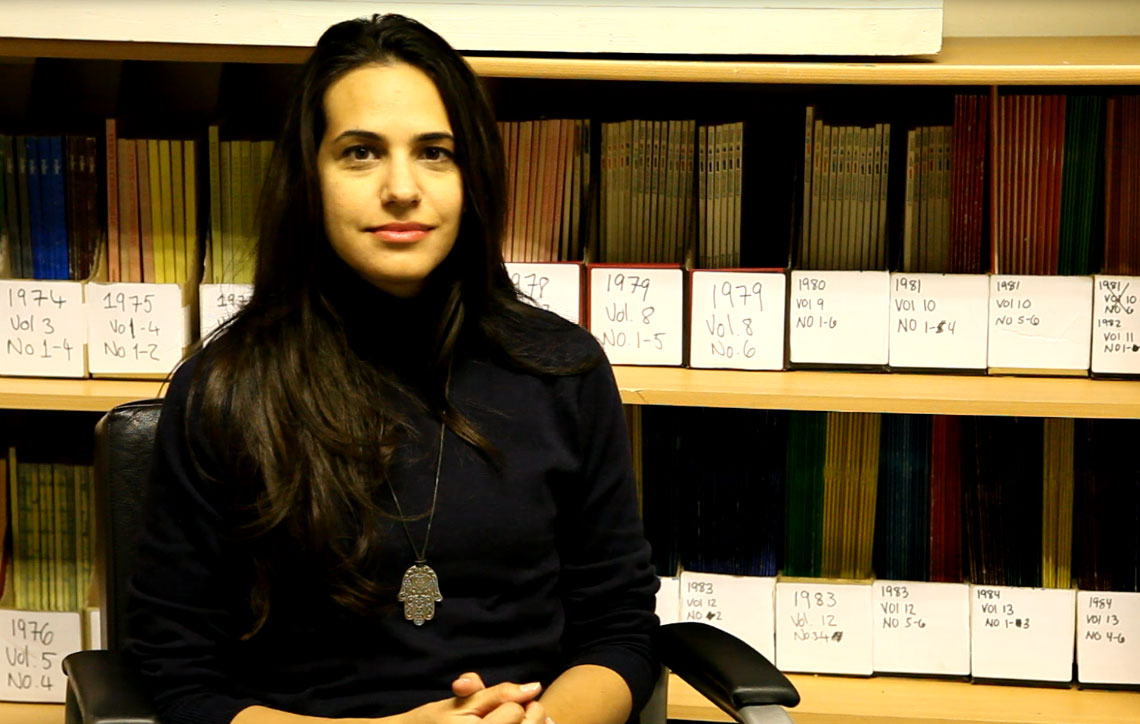Safa Al Ahmad is a Saudi journalist and documentary maker who has spent the last three years covertly filming an unreported mass uprising in Saudi Arabia’s Eastern Province.
Her 30-minute documentary, Saudi’s Secret Uprising, was broadcast by the BBC in May 2014, and has drawn widespread attention to the violent and bloody protests.
Al Ahmad took enormous risks in her regular filming trips to the Eastern Province. First, as a woman travelling alone, she drew the attention of Saudi officials, who operate in a country in which women have limited control over their day-to-day lives. Second, she carried a camera full of footage of dissenting activists. Saudi Arabia is ranked by Freedom House as one of the most restrictive Arab countries in terms of free expression – Al Ahmad would almost certainly have faced severe punishment if caught filming.
She also directed Al Qaeda in Yemen: A new front in 2012, documenting one of the militant group’s principal strongholds; she is currently editing her second Yemen documentary. Her article about the restrictive treatment of women in Saudi Arabia compared to neighbouring Arab countries, Wishful Thinking, was featured in the PEN award-winning book Diaries of an Unfinished Revolution.
Al Ahmad’s film work was done in Qatif, an urban area home to the world’s biggest oil field. But the dilapidated area has seen little of the vast wealth provided by these natural reserves. Qatif is the centre of Shia Muslims in Saudi Arabia, who make up less than 15 per cent of the country’s population. Residents believe that they are subject to sectarian discrimination by the Sunni monarchy.
Impoverished and blocked from celebrating Shia religious festivals by authorities, people from across the Eastern Province began peacefully demonstrating in March 2011. Buoyed by the ongoing Arab Spring, the protests for improved civil rights quickly gained traction, becoming the biggest series of political demonstrations ever witnessed in Saudi Arabia.
But faced with a government which refused to meaningfully engage with protesters or recognise the demonstrations as a serious issue, activists soon turned violent. Stones and molotov cocktails were thrown at police forces, and handguns were increasingly used. In the subsequent two years of conflict, 20 activists and two policemen were killed, and hundreds of people were detained for months at a time without trial.
Al Ahmad single-handedly broke the media blackout on the protests holding sway both inside and outside the country, where the image of Saudi Arabia as a relatively stable region has dominated. She travelled into the heart of the violence and searched, sometimes for months, for protesters willing to speak to her. She interviewed activists on the government’s most wanted list, who would later be killed or imprisoned. Eventually, she gained the activists’ trust to the point that she was given dozens of hours of footage of the violent protests.
Extensive and violent online abuse has been directed at Al Ahmad by Saudi government supporters. They regard the documentary as sectarian propaganda, even though the documentary ends by showing the destructive belligerence of many protesters.
She has sparked a row between the BBC and the Saudi government, who contacted the broadcaster to express their displeasure at the documentary’s characterisation of events. She has been informally advised not to return to the country, where her family live.
This article was posted 17 February 2015 at indexoncensorship.org





